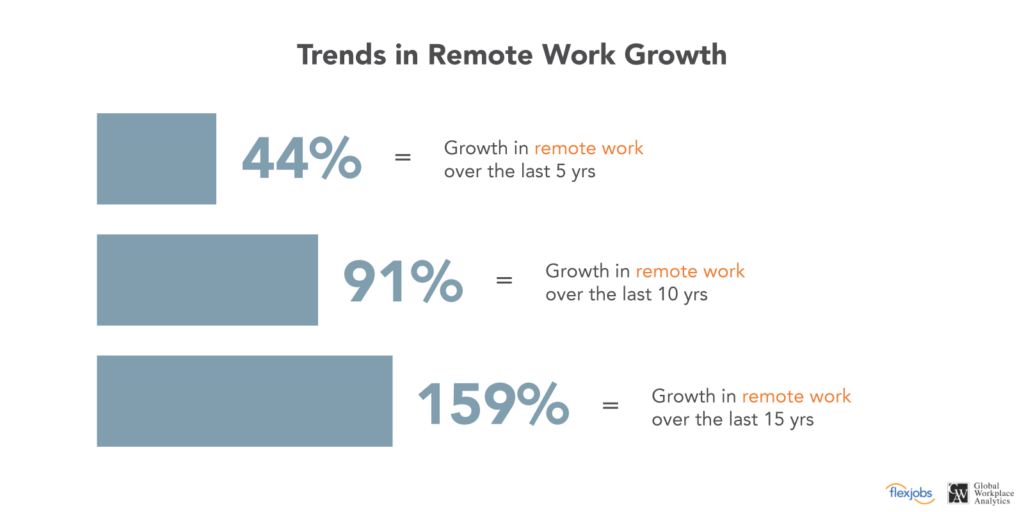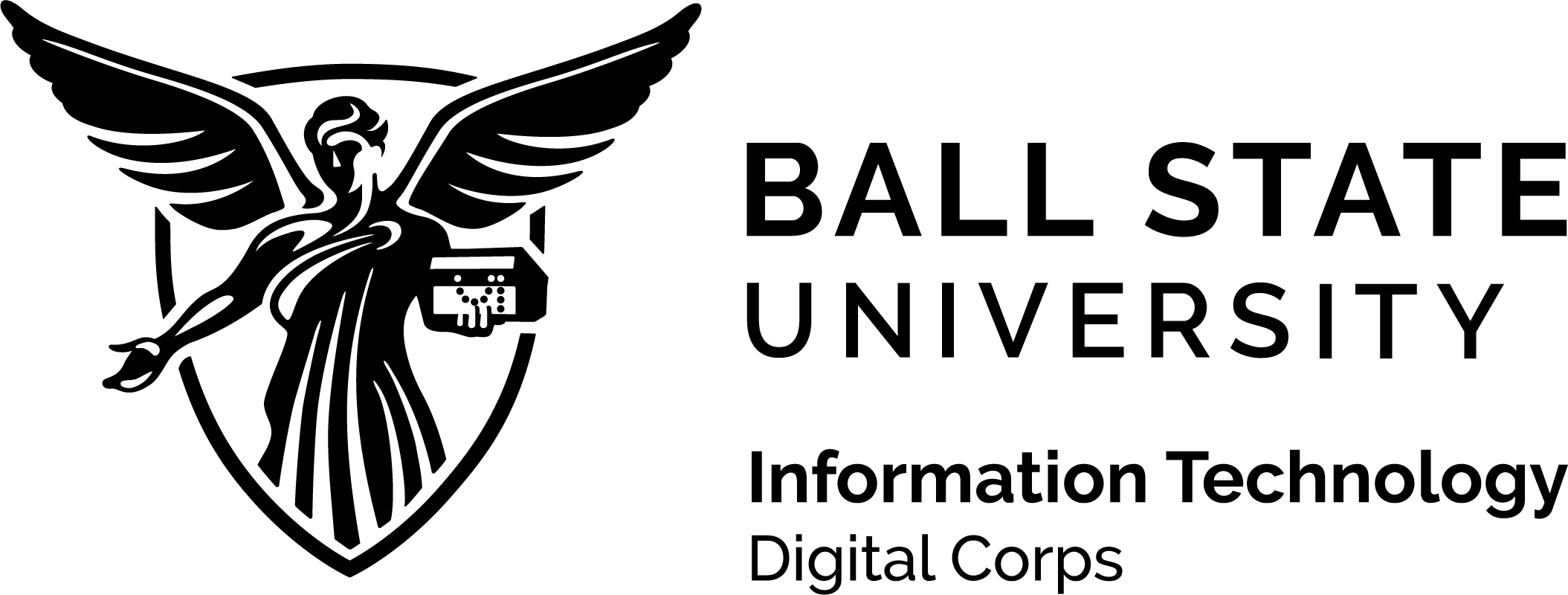Once COVID-19 caused a nationwide lockdown, remote work became almost everyone’s method of operation. Around 88% of companies shifted to remote work during the pandemic, and most are continuing this model now. However, working remotely is not a trend that was made popular by a pandemic; the amount of people working from home has increased by 159% over the course of 15 years.

The Digital Corps is one of the 88% of organizations that shifted to remote work during the pandemic. Our students are preparing for life after college, which leaves a lot of them wondering what the working landscape will look like in a few years. Organizations will struggle to bounce back after COVID-19, so more jobs may be permanently remote in the future.
According to remoters.net, a platform with resources and advice for remote professionals, companies have already identified the attractiveness of remote work when looking to hire hard to fill roles. Remote work is being used as a perk to attract applicants for “location independent” positions, which gives them a bigger, more diverse pool of people to choose from. This kind of future will make the job market more competitive for young people entering the workforce in the next couple of years.
But don’t fret! Here are three ways you can leverage your remote work experience in job applications.
Being self-sufficient
A great skill to have when applying for jobs is self-sufficiency. When working remotely, it can be difficult to find solutions when you are used to a team or collaborative in-person environment. Development Specialist Clayton Mercer spent his summer working remotely as a Full-Stack Software Engineering Intern for LifeOmic. He had to learn how to rely on himself more than others to get work done, especially when navigating tasks that were unfamiliar.

“[Working from home] allowed me to focus and grow as a developer because someone wasn’t right there next to me for question asking,” says Mercer. “I had to figure things out for myself.”
Being able to solve problems on your own without someone guiding you throughout the whole process is a great skill to leverage when applying for jobs. One of our Corps values here at the Digital Corps is finding self-motivated students. We constantly look for students who are passionate, go beyond the minimum requirements, and find solutions on their own. Developing these skills through remote work will be enticing to employers who value self-motivation and self-sufficiency.
Utilizing new technology
Software and applications like Slack and Basecamp are routine for Digital Corps employees, but when COVID-19 struck, it was apparent that we needed new programs to maintain better connections amongst employees. Staff introduced Miro and InOutBoard to our students at the start of the Fall 2020 school year to foster remote brainstorming and aid in communication.
Video Team Master Brittany Jones is a fan of both InOutBoard and Zoom, saying that using both makes it easier for her to maintain communication with her coworkers.

“I really like using Zoom,” says Jones. “The grid view, chat boxes, and breakout room features are very helpful to keep communication effective. I also love how everyone at the Corps always has their cameras on. It’s nice to see faces!”
Being able to adapt to new technology quickly is a great skill to have when applying for jobs. Experience with different software like these will give you an advantage within an application pool, especially when applying for remote positions.
Bettering communication skills
Working in a fast-paced, creative environment requires solid communication skills to ensure every part of a project is completed, especially when working on multiple projects at once. Without face-to-face communication in an office, some tasks are more likely to slip through the cracks. Being able to virtually communicate to everyone within an organization is an impressive skill to share with future employers because it shows that you are keeping up with all your tasks and can maintain collaboration through a computer screen. Not everyone can do that, and excellent communication is certainly a commonly sought-after trait.
To ensure consistent communication at the Digital Corps, we make sure to take clear notes during meetings and hold our meetings through video platforms, so we can mimic the face-to-face interaction we are missing. Being together virtually, on top of asking questions and providing thorough feedback on all deliverables, is the best way for us to ensure all our work is getting done.
Remote work is easier for some than it is for others. Clayton is one of those workers who does well on his own.
“I find myself extremely productive at home. I had to improve my
self-motivation and improve my focus by myself,” says Clayton.
“I’m much more driven now.”
Even if your remote work experience is limited there are still practical skills you developed that you could use to leverage yourself against competitors when job searching. It does not matter if you are looking for an in-office position or a remote one; being self-sufficient, utilizing different technologies and bettering your communication skills are just three of the many ways that remote work gives you an advantage.



